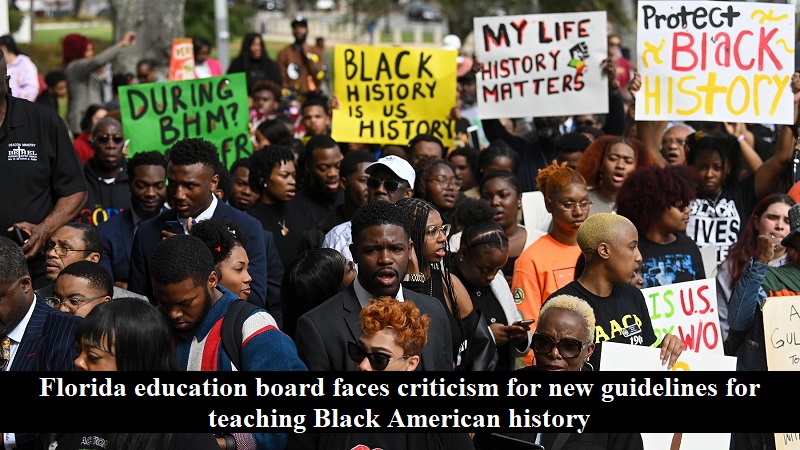
The Florida board of education has come under criticism from educators and civil rights groups following its approval of new guidelines for teaching Black American history.
The guidelines include “benchmark clarifications” for middle school students, addressing how enslaved individuals developed skills for personal benefit. While some argue that these guidelines shed light on the resilience of enslaved individuals, others view them as an attempt to downplay the horrors of slavery. The approval is part of Florida’s efforts to combat what Governor Ron DeSantis refers to as “woke indoctrination.”
The approved teaching guidelines for kindergarten through high school delve into challenging subjects like slavery and racist violence. Florida’s Education Commissioner, Manny Diaz Jr, stated that the curriculum includes both positive and negative aspects of history, maintaining a comprehensive approach to Black American history.
Members of the working group behind the guidelines, William Allen and Frances Presley Rice, defend the new language, explaining that it aims to showcase the agency and resilience of slaves. They argue that Florida students should understand how enslaved individuals made the most of their circumstances to benefit themselves and their African descendant community.
However, civil rights groups, including the National Association for the Advancement of Colored People (NAACP), expressed strong disapproval of the board’s decision. NAACP President Derrick Johnson criticised the guidelines, viewing them as an attempt to romanticise a dark chapter in American history and disregarding the dehumanisation and suffering endured by enslaved Black Americans.
Florida’s Education Association teachers’ union also raised concerns over the new standards, stating that they validated teachers’ fears following the enactment of laws targeting “woke” ideology in the state. The guidelines’ approval aligns with Governor DeSantis’ efforts to combat what he perceives as leftist influence in education.
It is important to note that the state of Florida, along with several others, has banned the teaching of critical race theory, which examines the role of systemic racism in shaping laws and institutions in the United States. These legislative measures reflect a broader national debate over how history and race are taught in American classrooms.

Post Your Comments